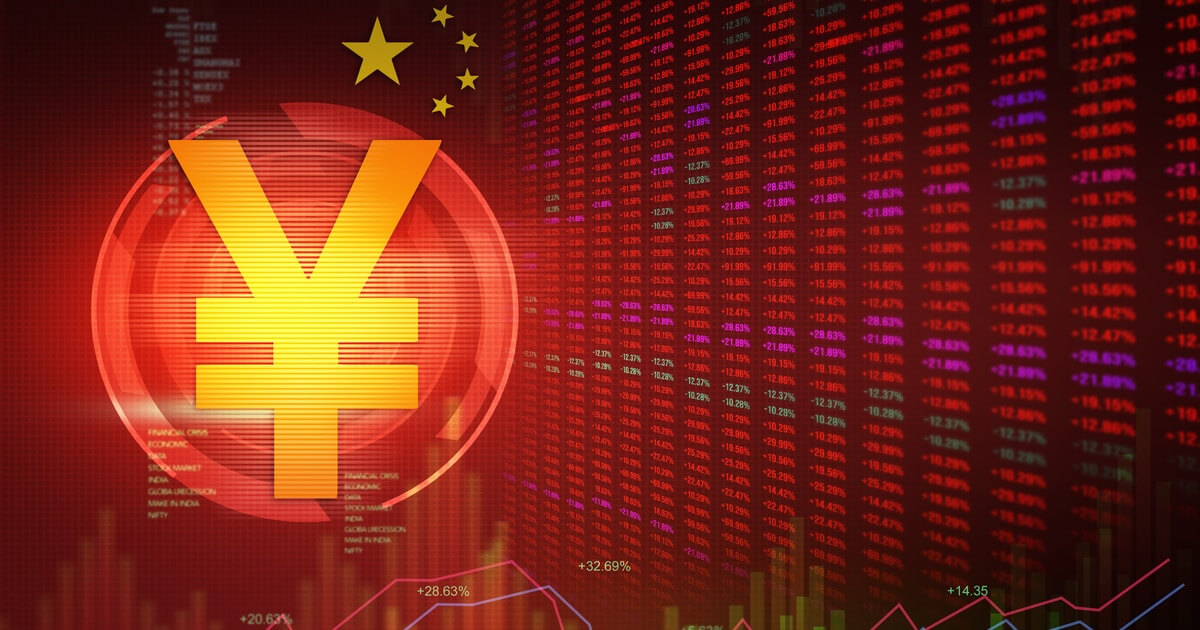China's Central Bank Says Digital Yuan Will Not Raise Inflation
Nicholas Otieno Apr 21, 2020 07:00
Bank of China claims that the introduction of digital yuan will not cause the occurrence of inflation.

China’s central bank has been secretive and silent when it comes to the testing of its national digital currency, which has piqued the curiousity of its citizens. A bank representative recently appeared at a state-owned television company responding to such public curiosities and gave an explanation of how the digital yuan would function.

Race to Ramp Up China’s Digital Yuan Progress
The representative confirmed that the digital yuan, commonly recognized as Digital Currency Electronic Payment (DCEP), has had a pilot test conducted. The testing has been carried out in several cities such as Beijing, Chengdu, Xiongan, Shenzhen, and Suzhou, and future testing is intended to take place in the winter Olympics.
The researcher put great emphasis that such current tests do not mean that the DCEP has been officially issued for public use.
The representative further said that this closed test of the national digital currency would not negatively affect the commercial operation of the listed institutions. The spokesperson stated that it would have no adverse effect on the traditional fiat currency (renminbi) system of circulation and issuance. The representative further mentioned that no effect would be caused on the financial market or social economy of China outside of this testing environment.
As a countermeasure against overselling the digital yuan, the bank mentioned that commercial institutions would be required to pay a 100% reserve to the central bank, first. In other words, the national digital currency would act as a kind of stablecoin, with the central bank first exchanging the virtual currencies to relevant operating agencies and various commercial banks. Such agencies will then release the digital currencies for public circulation. It is an organized system that works well to prevent any inflation because the digital yuan being staked to the traditional fiat yuan at a 1:1 ratio.
Concerning technical designs, the central bank has officially completed the top-layer of the design. The digital yuan will soon adopt a two-layer architecture as well as a two-tier delivery system besides that. The central bank also gave an important explanation with regards to connectivity. It revealed that if payment functions for payment platforms and online banking were to go offline because of weak signals, the Digital Currency Electronic Payment incorporates dual offline technology to compensate. Therefore, the digital yuan will be just as efficient as paper yuan. The bank also said that so long as two mobile phones touched with the Digital Currency Electronic Payment wallet incorporated into both, a transfer of payment can be conducted.
The bank says that the national digital currency is not tied to any kind of bank account and is free from the control of the traditional banking system. Unlike other cryptocurrencies, the national digital currency is launched by China’s central bank and backed by the country’s credit. This is similar to the electronic version of the traditional fiat renminbi. However, it remains to see how accurate the technicality of the DCEP would be.
China’s Digital Yuan to Be Operational for Local Government Employees Starting in May
China could be set to introduce its national digital currency in the market by May 2020. The Chinese administration plans to release the central bank digital currencies for its local government employees. It will be a real test to examine the usage of digital currencies among its government workers. However, it will be a pilot test of using the Digital Currency Electronic Payment for government workers’ transportation allowance. The country will also be testing the use of its digital currency electronic payment for paying salaries to its government employees.
Image via Shutterstock
Image source: Shutterstock

.jpg)